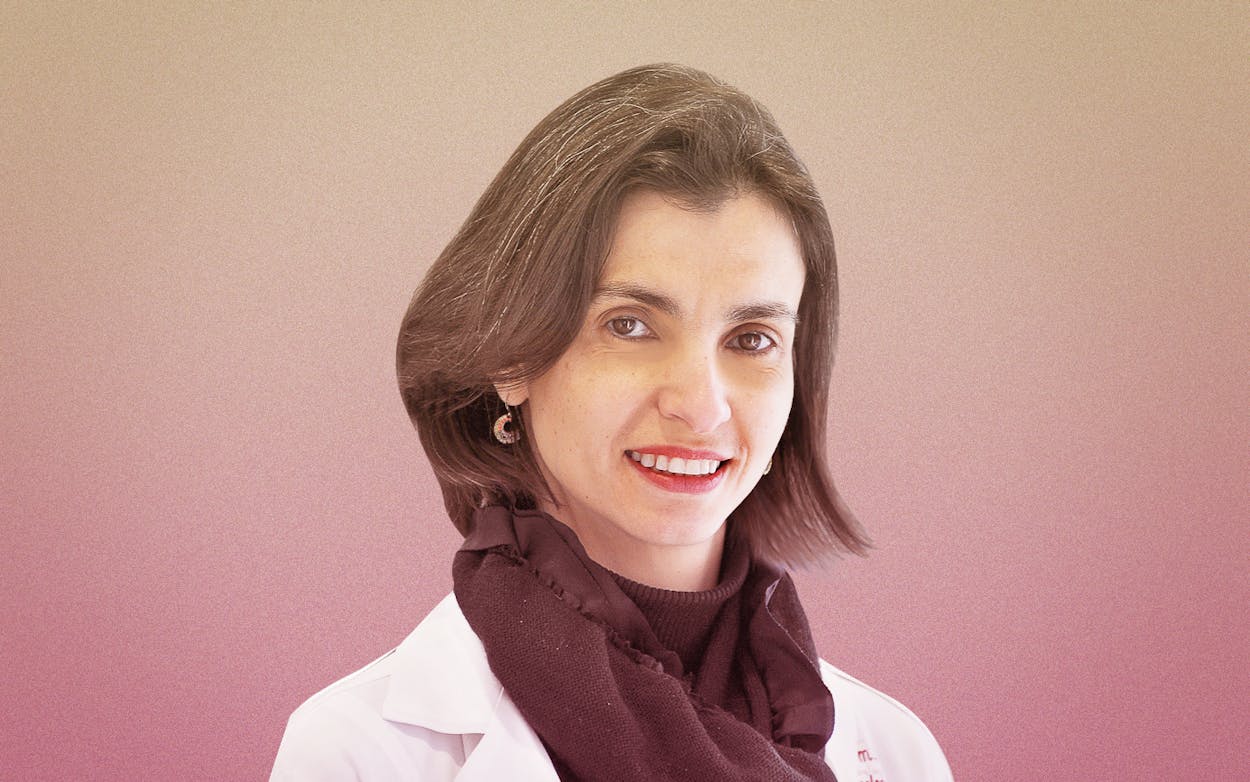In the coming days, Dr. Hana El Sahly of Houston’s Baylor College of Medicine will begin registering hospitalized participants at Baylor St. Luke’s Medical Center and Ben Taub Hospital for the second phase of the National Institutes of Health’s Adaptive COVID-19 Treatment Trial, or ACTT. She’s Baylor’s lead investigator for participation in the program, which in its first phase analyzed a randomized, controlled trial designed to evaluate the safety and efficacy of the investigational antiviral remdesivir. Preliminary findings suggested that patients treated with remdesivir recovered faster than patients who received a placebo, which led to the May 1 announcement that remdesivir would be the first medication to receive FDA authorization for emergency use for COVID-19.
Subscribe
“We found that for patients who have COVID-19 pneumonia bad enough to get them to the hospital, treatment with remdesivir expedites the time to recovery by an average of four days per patient,” says El Sahly, an associate professor of molecular virology and microbiology who also serves as the principal investigator for the college’s Vaccine and Treatment Evaluation Unit. “This particular finding is of importance in a pandemic because one of the main reasons, not all the reasons, we are on lockdown is to allow the public health sector to cope with the volume of patients. So if a hospital can get the the COVID pneumonia patients better, faster, this means the hospital is able to cope with more patients.”
ACTT’s second phase—which ramped up this week at twenty university hospitals across the country—will evaluate the success of remdesivir when paired with an immunomodulator. Meanwhile, El Sahly’s colleague at Baylor Dr. Peter J. Hotez is leading a team working on one of what are believed to be seventy-plus COVID-19 vaccine candidates in development (Texas Monthly recently documented his team’s 2016 effort at creating a different coronavirus vaccine). On The National Podcast of Texas, El Sahly outlined the initial challenges that researchers face on both the therapeutic and vaccine fronts, detailed which parts of COVID-19’s behavior is still unknown, and told us how she’s managing her own hopes and expectations while maintaining scientific distance.
Three takeaways from our conversation:
El Sahly believes that the most important unknown that still surrounds COVID-19 is whether recovered patients have temporary or enduring immunity.
The biggest question is still how do we develop, if we develop immunity to this virus, and what determines our immunity as individuals? And what level of herd immunity is needed to decrease and potentially eliminate the health impact of this virus? We need an understanding of what determines protection from infection. Under other circumstances, scientists have the luxury of time in evaluating a lot of aspects of a particular infection before saying this vaccine could or couldn’t work. But in order to get a vaccine that is safe and efficacious, there are many steps that need to be taken to sort of guide us along the way. With this, everything is understandably under compressed timelines and investigators are working on trying to develop an understanding of what constitutes immunity and trying to develop vaccines and that would work in an animal model, and humans. So, um, this is where in this particular line of COVID-19 management immunity is quite important.
El Sahly says that, so far, asymptomatic spread has been the most surprising aspect of COVID-19’s pathology.
We’ve known it for a while that individuals with no symptoms at all are carrying the infections, complicating the epidemiology and the public health questions around this virus. That’s a challenge that probably created a lot of the need for the shutdown and sheltering orders. And this particular finding is determining a lot of what we’re doing in looking for therapeutics and vaccines. It’s driving a lot.
Knowing what she knows as an infectious disease investigator, El Sahly says she’s trying to walk the line between pragmatism and hopefulness.
I’ve been telling people that this looks a lot to me like Hurricane Harvey only without dumping water on people. This is how devastating this has been to everyone. And I’m reminding them that there was life after Harvey and there will be life during and after the pandemic. There will be losses, but we will try to get a better place soon. But I’m also worried about failure. When we go in to test a drug or a vaccine, there’s always a probability of success and a probability of failure. And that’s why we do the testing. Otherwise, what’s the point? I worry the impact of failure is more consequential with this virus than ever before.
(Excepts have been condensed and edited for clarity.)






